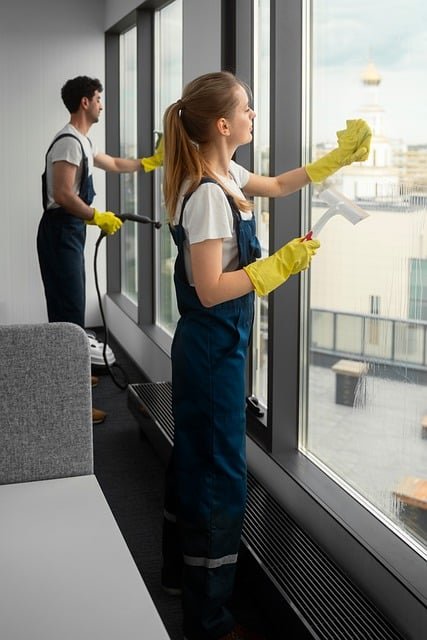Explore Cleaning Job Roles and Environments for a Fresh Start
Discover the diverse landscape of cleaning job roles, requirements, and work settings in this comprehensive guide. From understanding the demands of each position to exploring the unique work environments, this article sheds light on the world of cleaning careers. Whether you're considering a switch or seeking insights into the industry, embark on a journey into the realm of cleaning jobs.

What Types of Cleaning Jobs Are Available?
The cleaning industry encompasses numerous specialized roles. Commercial cleaners maintain office buildings, retail spaces, and business facilities. Residential cleaners focus on private homes and apartments. Industrial cleaners work in manufacturing plants and warehouses. Healthcare facility cleaners operate in hospitals and medical offices, following strict sanitization protocols. Additional positions include window cleaners, carpet cleaning specialists, and pressure washing technicians.
What Qualifications Do You Need for Cleaning Jobs?
Most entry-level cleaning positions require no formal education beyond a high school diploma or equivalent. However, specific certifications can enhance job prospects and earning potential. OSHA safety training, proper chemical handling certification, and specialized equipment operation credentials are valuable. Some healthcare cleaning positions may require additional certifications in medical facility sanitization protocols.
What Are the Common Work Environments?
Work environments vary significantly based on the cleaning role. Office cleaners typically work evening shifts in climate-controlled buildings. Healthcare cleaners operate in medical facilities around the clock. Industrial cleaners may face more challenging conditions in manufacturing settings. Residential cleaners travel between private homes during daytime hours. Each environment presents unique challenges and opportunities.
What Skills and Physical Requirements Are Essential?
Successful cleaning professionals need attention to detail, time management skills, and physical stamina. The ability to work independently and follow detailed cleaning protocols is crucial. Most positions require lifting up to 25 pounds, extended periods of standing, and comfort with cleaning equipment operation. Communication skills are important when interacting with clients or facility managers.
What Career Advancement Opportunities Exist?
The cleaning industry offers various advancement paths. Entry-level cleaners can progress to team leaders, supervisors, or facility managers. Some professionals start their own cleaning businesses or specialize in lucrative niches like post-construction cleanup or disaster restoration. Additional certifications and experience can lead to roles in training, quality control, or operations management.
What Are the Typical Salary Ranges and Benefits?
The cleaning industry offers competitive compensation varying by role, location, and experience level. Here’s a breakdown of typical annual salary ranges:
| Position Type | Entry Level | Experienced | Senior Level |
|---|---|---|---|
| Commercial Cleaner | $22,000-$26,000 | $26,000-$32,000 | $32,000-$40,000 |
| Healthcare Facility Cleaner | $24,000-$28,000 | $28,000-$35,000 | $35,000-$45,000 |
| Industrial Cleaner | $25,000-$30,000 | $30,000-$38,000 | $38,000-$48,000 |
| Cleaning Supervisor | $32,000-$38,000 | $38,000-$45,000 | $45,000-$55,000 |
Prices, rates, or cost estimates mentioned in this article are based on the latest available information but may change over time. Independent research is advised before making financial decisions.
The cleaning industry continues to evolve with new technologies, sustainable practices, and specialized service demands. Understanding the various roles, requirements, and work environments helps professionals make informed career choices. While starting positions may be entry-level, the industry offers clear pathways for growth and advancement for dedicated individuals.




